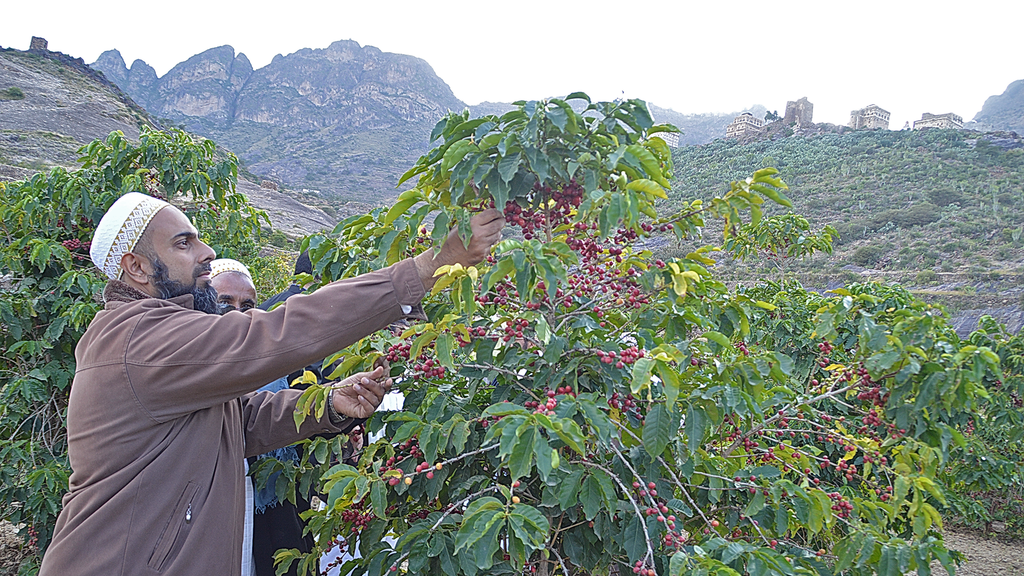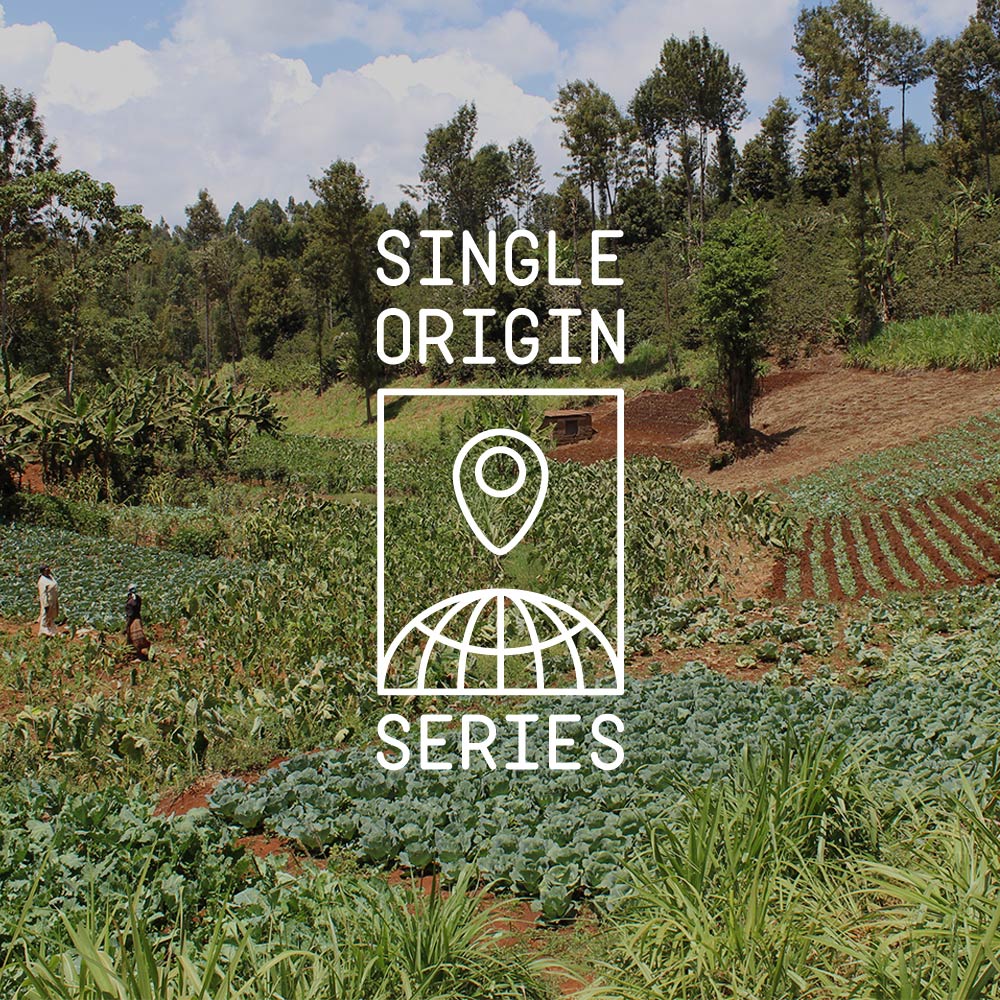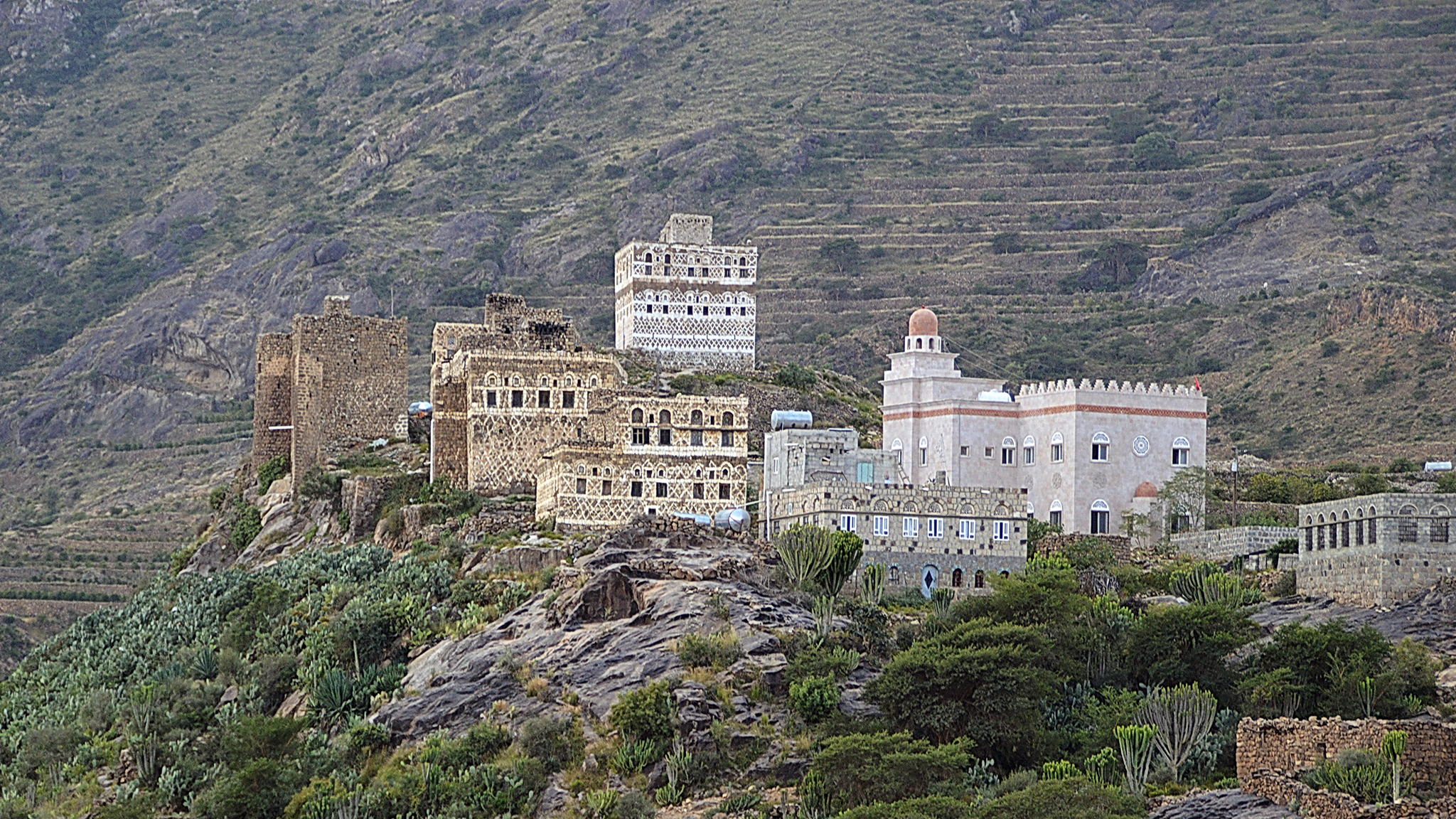Farm Notes

Region: Al Qafr, Ibb
Variety: Hiwari & Tuffahii
Growing Altitude: 1900-2500 masl
Processing Method: Natural
Length of Relationship: New!
Historically Delicious

The vast majority of coffee grown worldwide can trace its roots back to the highlands of Yemen. From the 1500s-1700s, nearly all of the coffee consumed across the globe was grown there. Yemen, and its famous Port of Mocha, is so pivotal to coffee that it’s the reason for the scientific name Coffea Arabica, the Moka Pot, the Mocha-Java blend and the beloved chocolate coffee drink, the Mocha Latte. Coffee originated in Ethiopia, but it was in Yemen that cultivation, brewing and export were perfected. In Yemen’s arid landscape and extreme elevation, several drought resistant strains evolved, were smuggled out of the country by Dutch traders and slowly made its way to other countries.
The Pearl of Tehama
Yemen has a coffee history to be proud of, but it's what’s happening today that’s the most exciting to us. Fatoum Muslot, daughter of longtime Yemeni exporter Ali Hibah Muslot, opened her own export business in 2015, one of very few women to do so. Her focus has been on supporting individual farmers through interest-free loans, starting a coffee research center, and establishing an advisory board that works directly with farmers to improve crop quality. Fatoum’s vision is to develop long-term support structures for farmers, while restoring Yemen’s reputation as the producer of some of the world’s best coffee. This particular offering is made up of coffee from 131 small farms across the highlands, all members of the farming community that Fatoum works tirelessly to champion and support.

Reaching New Heights
With farms at nearly 2500’ in elevation, this is easily the highest-grown coffee we’ve ever offered. Besides the great views, there are a number of advantages to high elevation coffee and a reason that it’s so prized. Higher elevation means greater contrast between daytime and nighttime air temperature, which helps coffee develop and ripen more slowly. This forces sugar production in the cherry, yielding a coffee that is more fruited, sweet, and complex than those grown at lower elevation. The fruit notes are further enhanced through careful sun-drying (skin, fruit and seed dried together), resulting in a sweet and intensely flavorful brew.

Celebrating Yemen
Yemeni coffee is on the rise. With a mix of traditional farming methods, modern techniques, and investments in the farmers who make it possible, Yemeni coffee is perhaps the best it’s ever tasted. It’s also a crucial time to support Yemen, as the economic situation is growing increasingly dire due to protracted conflict. Yemeni farmers are some of the poorest in the world and the higher prices earned from selling specialty grade coffee can have a huge impact. This is but the first taste of what we hope will be a long and fruitful relationship.









